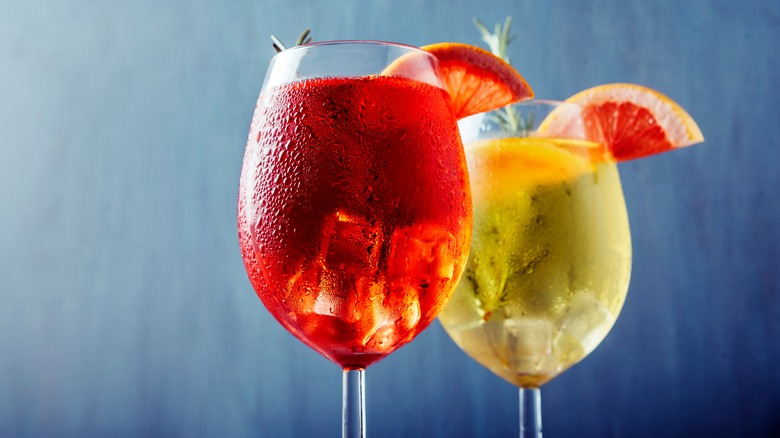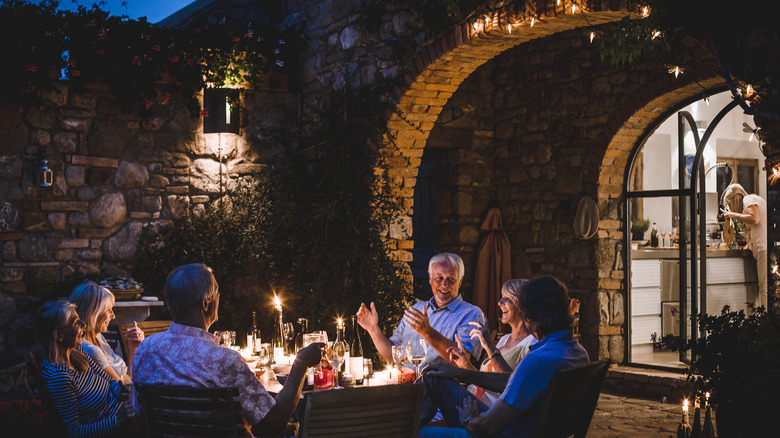The Biggest Cocktail Mistake The US Is Making, According To Tony Abou-Ganim - Exclusive
Cocktail bars have become a ubiquitous feature of American nightlife, but this is a surprisingly recent innovation brought about by the cocktail renaissance which arguably began with the opening of the legendary New York cocktail bar Milk & Honey on New Year's Eve in 1999. A little over two decades later, there's still plenty of room on the scene for new ideas. At the Nassau Paradise Island Wine and Food Fest's Jerk Jam event, Tasting Table had a chance to chat with master mixologist Tony Abou-Ganim about how Americans could be doing better behind the bar.
"I think in this country we haven't embraced aperitivos like the rest of the world has," Abou-Ganim said. "I mean, you go to Paris or Italy, people are having aperitivo hour, so that's something that I'm working really hard to kind of elevate the exception of the aperitivo." Aperitivos (the Italian version of the French aperitif) are the counterpart to the after-dinner digestif. An aperitivo is like a liquid appetizer, something you sip on before dinner arrives to stimulate your appetite. It's also a great way to socialize with friends and family.
When we were talking about good aperitivos to try, Abou-Ganim said, "Vermouth with seltzer, with a slice of orange, a slice of lemon, like you said, is a beautiful aperitivo." Many of you will likely be familiar with vermouth as an ingredient in a martini, but it's rare for vermouth to be the star of the show this side of the Atlantic.
Could it stick?
We love the idea of bringing aperitivo hour to the States, but there's more to the story than simply asking if aperitivos taste good. It's no secret that American dining culture is quite a bit different than European dining. The fact that fast food was born in America is a telling example of the busy fervor that surrounds our eating habits. Even for healthier diets, the conversation around eating is about the nutritional value you get out of the meal more so than the social rituals that contextualize the event. Europeans are much more likely to draw their meals out over several hours through multiple courses and lively conversation.
In a word, aperitivo hour is hopelessly bourgeois – a feature of European social customs that does not translate well to American culture. For good or for ill, American dinners simply don't take up three hours the way a good European meal might. This isn't meant as a criticism of European eating habits. There's a very good argument to be made that Americans would be much happier if they just slowed down and enjoyed each other's company more regularly. If we wanted to get serious about the topic, the collapse of social trust and the rising rates of social isolation all point to American eating habits becoming more individualized.
Come to think of it, maybe Abou-Ganim is onto something. Maybe aperitivos are the exact thing this country needs to begin to bring back our sense of community.

